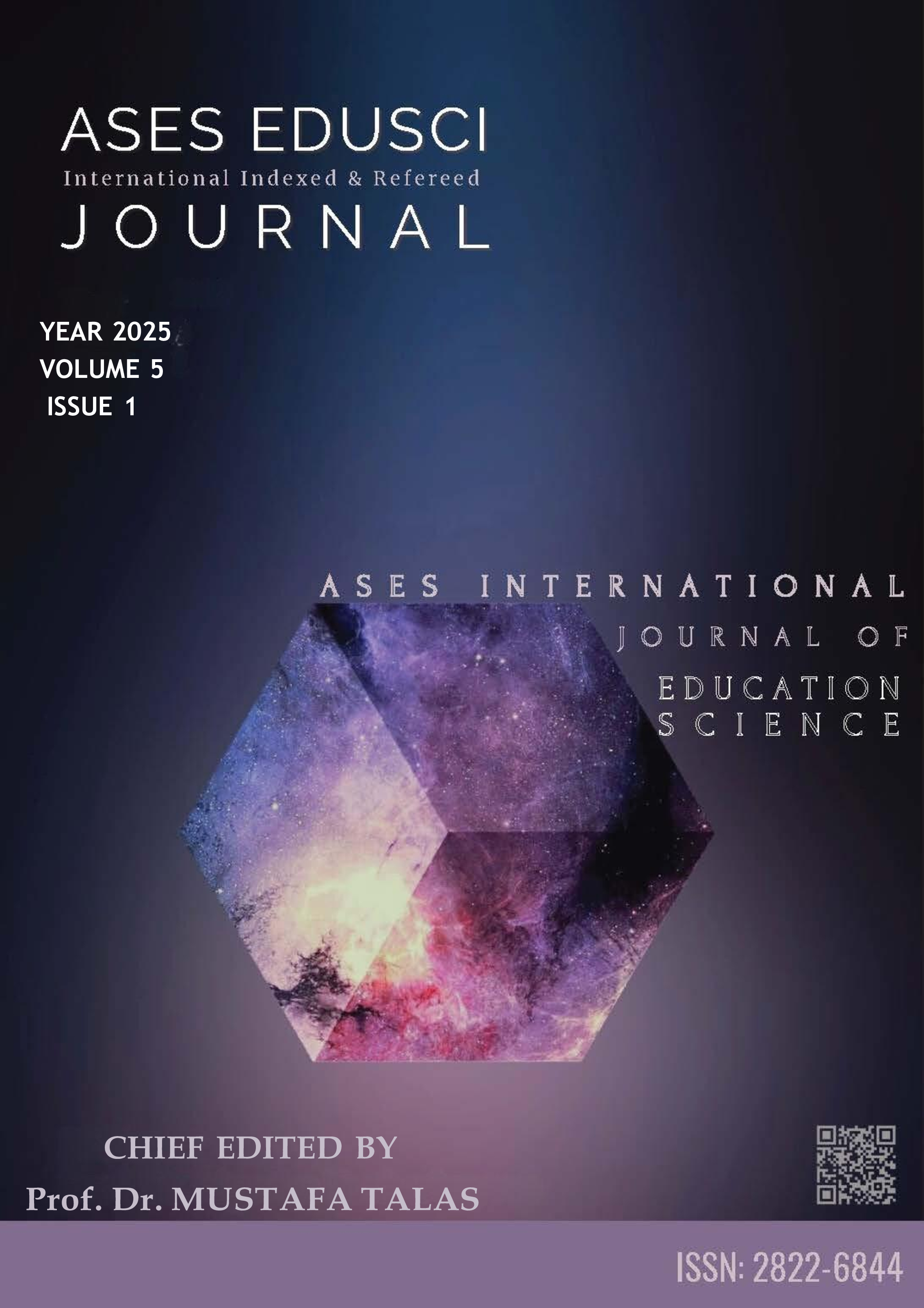Comparative Program Analysis in Traditional Music Teaching
DOI:
https://doi.org/10.5281/zenodo.15719253Keywords:
Traditional music education, Conservatory, Program Analysis, CurriculumAbstract
In this study, it is aimed to compare, evaluate and analyze the curricula of some universities in Bulgaria, England, the Netherlands, China and Turkey that provide music education in the traditional sense. By comparing music education programs in different countries, it aims to reveal good practices in the field and to contribute to the development and dissemination of these practices. In addition, it is aimed to be a resource for music educators, academicians and researchers working in this field. For this purpose, curricula were analyzed in terms of their general structure, content, academic staff and learning-teaching process. The data obtained were obtained through document analysis and the similarities and differences between the curricula were revealed. Music education programs in the countries subject to the research stand out with their course contents, academic staff profiles and education periods suitable for their cultural heritage. According to the findings obtained from the research; when their general structures and contents are examined, it is seen that traditional music education programs are aimed at training artists and music educators. It was determined that music theory and performance-based practices are in the majority. Cultural studies and instrument training are also included in the curricula. It was also seen that music technology and ethnomusicology were included as a minority. When the learning-teaching process was examined, it was seen that the music curriculum should be completed in the same period in all countries except England. The credits were found to be compatible with the European Credit Transfer System (ECTS), and it was found that only in China, annual credit-based evaluation was made in the credit system. When the academic staff was analyzed, it was found that the highest number of academic staff was found in the Chinese Conservatory of Music. When the academic staff of the schools subject to the research were examined, it was seen that there were expert music educators, academicians, nationally or internationally recognized musicians.
References
Admin (2017). Öğretim Nedir? Eğiticinin Eğitimi. https://www.egiticininegitimi.gen.tr/ogretim_nedir.php sayfasından erişilmiştir.
Akın, B. (2018). Kültürel Bellek ve Müzik. Eurasian Journal of Music and Dance, (13), 101-117.
Albuz, A., ve Demi̇rel, S. (2019). 2009 Ortaöğretim Müzik Dersi Öğretim Programı İle 2018 Ortaöğretim Müzik Dersi Öğretim Programının Karşılaştırılmalı Kuramsal Çerçeve Analizi. Güzel Sanatlar Enstitüsü Dergisi, 42, 146-156. https://doi.org/10.32547/ataunigsed.505277
Aydın, Y. (2008). Türk Halk ve Geleneksel Müziklerinin Evrensel Müziğe Katkıları. Motif Akademi Halkbilimi Dergisi, 1(2), 135-143.
Burdur Mehmet Akif Ersoy Üniversitesi Türk Müziği Devlet Konservatuvarı (2024). https://tmdk.mehmetakif.edu.tr/icerik/404/650/misyon-vizyon adresinden erişilmiştir.
Demirel, S. ve Karaelma, B. (2022). Türkiye ve Kosova 6. sınıf müzik öğretim programlarının karşılıklı incelenmesi, RumeliDE Dil ve Edebiyat Araştırmaları Dergisi, (30), 722-735. DOI: 10.29000/rumelide.1192664.
Demirel, S. ve Terzioğlu, A. M. (2023). Denizli Türkülerinin İlköğretim Müzik Dersinde Kullanılabilirliğine Yönelik Bir Araştırma. Pamukkale Üniversitesi Eğitim Fakültesi Dergisi, 59, 120-140.
Erdoğan, T., ve Gök, B. (2011). Türkiye, Finlandiya Ve İrlanda Ana Dili Öğretim Programlarının Karşılaştırılması. Dokuz Eylül Üniversitesi Buca Eğitim Fakültesi Dergisi(29), 1-19.
Feng. H., Zheleznyak V.,(2023). Современное состояние и тенденции развития музыкального образования в Китае. Studia Culturae, 54, 138-138. https://doi.org/10.31312/2310-1245-2022-54-138-156
İTÜ Türk Musikisi Devlet Konservatuvarı (2024) Vizyon ve Misyon https://tmdk.itu.edu.tr/hakkimizda/vizyon-ve-misyon adresinden erişilmiştir.
Kolukırık, K. (2016). Osmanlı Devleti’nde İlk Resmî Konservatuvar Olan Dârülelhanda Derleme ve Yayım Faaliyetleri. Selçuk Üniversitesi Türkiyat Araştırmaları Dergisi (35), 479-798. https://doi.org/10.21563/sutad.187106
Kurtuldu, M. K., (2008). Türk toplum yapısı ve geleneksel müzik türleri etkileşimi . 38. Uluslararası Asya ve Kuzey Afrika Çalışmaları Kongresi (Icanas) (365-375), Ankara, Türkiye.
Millî Eğitim Bakanlığı Ortaöğretim Kurumları Yönetmeliği. Öğretim programları genel bilgileri. https://mevzuat.sitesi.web.tr/ortaogretim-kurumlari-yonetmeligi/10/ sayfasından erişilmiştir.
Otacıoğlu, S.G., (2016). Türkiye'de müzik öğretmeni yetiştiren kurumlar ile AB üyesi Avusturya'da müzik öğretmeni yetiştiren sanat üniversitelerinin eğitim programlarının karşılaştırılması. Uluslararası Sosyal Bilimler ve Eğitim Araştırmaları Dergisi, 2(3), 896-904. https://doi.org/10.24289/ijsser.279032
Özdek, A. (2012, Nisan). Türk Müzik Kültürünün Oluşumuna Öncülük Eden Bileşenlere Genel Bir Bakış. Uluslararası Katılımlı Bilim ve Kültür Sempozyumu'nda sunulmuş bildiri, Batman Üniversitesi, Batman.
Özgül, İ. (2021). Müzik Dersi Öğretim Programının Avrupa Yeterlilikler Çerçevesi ve Türkiye Yeterlilikler Çerçevesi Açısından İncelenmesi. OPUS Uluslararası Toplum Araştırmaları Dergisi 18(43), 6806-6838. https://doi.org/10.26466/opus.962013
Palet Türk Müziği İlkokulu (2024). Kuruluş Hikayemiz, https://paletturkmuzigiokulu.com/hakkimizda/kurulus-hikayemiz adresinden erişilmiştir.
Peli̇koğlu, M. C., ve Özşen, B. (2015). Türk Müziği ve Batı Müziğinde Kullanılan Bazı Tür ve Biçimlerin Birbirlerine Benzerlikleri Üzerine Bir Değerlendirme. İnönü Üniversitesi Kültür ve Sanat Dergisi 1(2), 51-60. https://dergipark.org.tr/tr/download/article-file/716474 sayfasından erişilmiştir.
Rauduvaitė, A., & Yadian, D. (2018). The analysis of music teacher education programmes in Lithuania and China. International journal of learning and teaching. Kyrenia: SciencePark Science, Organization and Counseling (SPROC), 2018, Vol. 10, iss. 1.
Sak, R., Şahin Sak, İ. T., Öneren Şendil, Ç., Nas, E. (2021). Bir araştırma yöntemi olarak doküman analizi. Kocaeli Üniversitesi Eğitim Dergisi, 4(1), 227-256.
Shand, P. (1997). Dünya Müzikleri Eğitimi. Okullarda Müzik ve Öğretmen Eğitimi: Küresel Bir Perspektif, ed. Samuel Leong. CIRCME, 1997. s. 47-58.
Wehrli, G. (2011). The nuts and bolts of curriculum and assessment. Journal of Clinical Apheresis, 26(1), 29-46. https://doi.org/10.1002/jca.20265
Downloads
Published
How to Cite
Issue
Section
License
Copyright (c) 2025 ASES EDUSCI (INTERNATIONAL JOURNAL OF EDUCATIONAL SCIENCES) ISSN: 2822-6844

This work is licensed under a Creative Commons Attribution-NonCommercial 4.0 International License.


